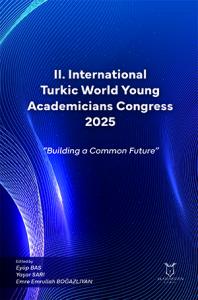The Korkut Ata Turkic World Film Festival as Cultural Counter-Hegemony
Özet
This article examines the Korkut Ata Turkic World Film Festival as a case of cultural counter-hegemony and regional soft power. Established in 2021 through collaboration between Turkey and the International Organization of Turkic Culture (TÜRKSOY), the festival aims to foreground the shared cinematic heritage of Turkic-speaking communities across Eurasia. Drawing on theories of cultural imperialism (Schiller, Tomlinson), soft power (Nye), and postcolonialism (Said, Bhabha), the study analyzes how the festival functions as a platform for resisting global cultural homogenization, particularly the dominance of Western media narratives. It argues that the festival fosters intercultural solidarity, promotes cultural continuity, and elevates regional identity through film. The article contextualizes Korkut Ata’s strategic role in Turkey’s broader cultural diplomacy, comparing its programming and ideological framing with global and regional counterparts such as Cannes, Berlinale, Fajr, and MIFF. It further discusses opportunities and challenges faced by the festival, including linguistic accessibility, inclusivity, global visibility, and ideological framing. Recommendations include embracing digital platforms, multilingual promotion, inclusive content, and international collaborations to increase its global impact. Ultimately, the festival is framed not just as a regional cinematic event, but as a cultural movement that reclaims narrative sovereignty and enacts a multipolar cultural world order. Through shared stories and cooperation, the Korkut Ata Festival offers a compelling model for cultural resilience and identity-building in the face of hegemonic globalization.

